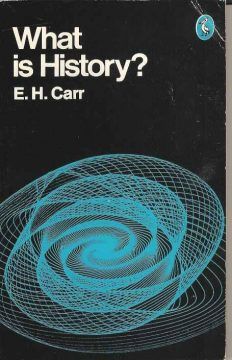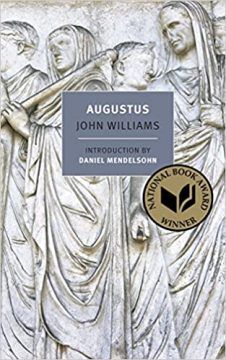by Dave Maier
 The word “interpretivism” suggests to most people a particularly crazy sort of postmodern relativism cum skepticism. If our relations to reality are merely interpretive and perspectival (I will use these terms interchangeably as needed, the idea being that each interpreter has her own distinct perspective on a world not reducible to any single view), our very access to objective facts seems threatened. Nietzsche, for example, famously says that “there are no facts, only interpretations” (a careless misreading, but let’s not get into it here). Fast-forward to Jacques Derrida and the whole lit-crit crew, who claim that everything is a text; and with the triumphantly dismissive reference to that notorious postmodern imp, the game is over. Interpretation is for sissies; let’s get back to doing hard-nosed empirical science (or objective metaphysics).
The word “interpretivism” suggests to most people a particularly crazy sort of postmodern relativism cum skepticism. If our relations to reality are merely interpretive and perspectival (I will use these terms interchangeably as needed, the idea being that each interpreter has her own distinct perspective on a world not reducible to any single view), our very access to objective facts seems threatened. Nietzsche, for example, famously says that “there are no facts, only interpretations” (a careless misreading, but let’s not get into it here). Fast-forward to Jacques Derrida and the whole lit-crit crew, who claim that everything is a text; and with the triumphantly dismissive reference to that notorious postmodern imp, the game is over. Interpretation is for sissies; let’s get back to doing hard-nosed empirical science (or objective metaphysics).
On this account, the opposite of “interpretive” is something like “representational”: our successful beliefs simply get the world right, with no (subjective, open-ended, wishy-washy) interpretation required. This makes sense up to a point. Our beliefs portray the world as being a certain way, not as (primarily) meaningful or enlightening or useful, or whatever is characteristic of our favored interpretations. On the other hand, to distinguish belief from meaning in this way makes it seem as if interpretation does not concern itself with belief or inquiry at all. Yet even if interpretation is not the same as inquiry, or meaning the same as belief, they are – or so we post-Davidsonian pragmatists claim – more closely intertwined than this dichotomous account would indicate.
One way to sort this out is to jump right into it with a close analysis of the notions of meaning and belief in the manner of the later Davidson and Richard Rorty’s frustratingly dodgy use of same. We’ll do more of that later on (he warned); but today I wanted to try another tack. It is generally accepted that history in particular is an interpretive discipline (a “humanity,” not a “science”), yet it is commonly accepted as well that historians deal in facts. If we can see how this conceptual accommodation works in the narrower context, we may be able to transpose it, or something like it, into our larger one. In this post I will set the problem up, leaving you in suspense until next time when I reveal a possible solution.
Let’s start by noting that even in the case of history it’s not at all obvious how to make that accommodation. The dustbin of history (so to speak) is littered with attempts to scientize the discipline, squeezing out all of that questionable reliance on human subjectivity which is implied by the concept of interpretation. (That is, I take it as given that these projects fail.) On the other hand, if the interpretive nature of history consists solely in its attempt to make sense of (not atoms and galaxies, but instead) the actions and motives of human beings, then we most likely won’t be able to transpose our understanding to inquiry more generally.
 More to the point, we hardly need eccentric Germans or postmodern imps to question the facticity of history. Consider first this poignant excerpt from author Tara Westover’s recent best-selling memoir of her escape from fundamentalist Mormonism. At Cambridge, she tells her professor that
More to the point, we hardly need eccentric Germans or postmodern imps to question the facticity of history. Consider first this poignant excerpt from author Tara Westover’s recent best-selling memoir of her escape from fundamentalist Mormonism. At Cambridge, she tells her professor that
I had decided to study not history, but historians. I suppose my interest came from the sense of groundlessness I’d felt since learning about the Holocaust and the civil rights movement—since learning that what a person knows about the past is limited, and will always be limited, to what they are told by others. I knew what it was to have a misconception corrected—a misconception of such magnitude that shifting it shifted the world. Now I needed to understand how the great gatekeepers of history had come to terms with their own ignorance and partiality. I thought if I could accept that what they had written was not absolute but was the result of a biased process of correction and revision, maybe I could reconcile myself with the fact that the history most people agreed on was not the history I had been taught. Dad could be wrong, and the great historians Carlyle and Macaulay and Trevelyan could be wrong, but from the ashes of their dispute I could construct a world to live in. In knowing the ground was not ground at all, I hoped I could stand on it. [Educated, p.238]
It is not quite true that “what a person knows about the past is limited … to what they are told by others,” but the worry is clear. One is born without any knowledge of history at all, and has thereafter only limited time and resources with which to amend this lamentable epistemic predicament. The issue will be a) what sense of “knowledge” (or “ground”) survives the admission of “ignorance and partiality” (and of “bias”), and b) similarly, if even the “great historians” are wrong, than is it possible for anyone to be right? What would that mean? (That’s (a) again.)
 Hmmm. Let’s try another quote. This one is from author John Williams, best known for his book Stoner, which is not, as the title may suggest, the unauthorized biography of Tommy Chong, but instead a probing novel of academic life. Our quotation, however, is from his historical epistolary novel Augustus, about the Roman emperor of that adopted name. In a letter to Nicolaus of Damascus toward the end of his life, Augustus writes that he has written “a statement of all of my acts and services to Rome and its empire”:
Hmmm. Let’s try another quote. This one is from author John Williams, best known for his book Stoner, which is not, as the title may suggest, the unauthorized biography of Tommy Chong, but instead a probing novel of academic life. Our quotation, however, is from his historical epistolary novel Augustus, about the Roman emperor of that adopted name. In a letter to Nicolaus of Damascus toward the end of his life, Augustus writes that he has written “a statement of all of my acts and services to Rome and its empire”:
I have a copy of this document before me now, and from time to time I glance at it, as if it were written by someone else. During its composition, I found it necessary upon occasion to refer to a number of other works, so distant in time were some of the events that I had to record. It is remarkable to have grown so old that one must depend upon the work of others to search into one’s own life.
Among the books that I consulted were that Life of me which you wrote when you first came to Rome, those portions of our friend Livy’s history of the Founding of the City which concerns itself with my early activities, and my own Notes for an Autobiography—which, after all these years, seems also to be the work of someone other than myself.
If you will forgive me for saying so, my dear Nicolaus, all these works seem to me now to have one thing in common: they are lies. I trust that you will not too literally apply this remark to your own work; I believe you know what I mean. There are no untruths in any of them, and there are few errors of fact; but they are lies. I wonder if during your recent years of study and contemplation in the quiet of your far Damascus you have come to understand this also.
For it seems to me now that when I read those books and wrote my words, I read and wrote of a man who bore my name but a man whom I hardly know. Strain as I might, I can hardly see him now; and when I glimpse him, he recedes as in a mist, eluding my most searching gaze. I wonder, if he saw me, would he recognize what he has become? Would he recognize the caricature that all men become of themselves? I do not believe that he would. [pp. 268-9]
That last bit, where Augustus muses about the mists of memory and time, seems not quite to support the bold conclusion that the non-untruths of history are lies (as implied that it would by the word “for”), even as he urges Nicolaus not to apply this remark “too literally.” I take this concession to mean not simply, as Augustus goes on to say, that “there are no untruths in any of them,” but also that the historians he mentions do not intend to deceive their audiences, as liars typically do. If so, the force that remains of the original judgment must be that historians necessarily deceive their audiences, even without intending to do so.
This still sounds a bit strong to me. I think I see what Westover and the fictional Augustus (himself the product of a pack of lies, ironically enough) are getting at, but I still balk at the thought that the perspectival nature of historical inquiry necessarily renders the result either deceptive (although “not untrue”) or actually false or otherwise unknowable. Most readers of history know what they are getting into; and it is well possible to read even fairly conflicting accounts of the same events without necessarily getting the feeling either that one is being thereby deceived, or that the mere fact of disagreement among historians indicates that the truth is necessarily beyond our grasp. Indeed, one’s sense of grasping at least part of the truth, and consequently avoiding deception, can even be strengthened by reading widely among historians of different backgrounds and intents.
 Here we might turn to the exception that, as the saying goes, proves the rule. I’ve just read historian Richard J. Evans’s meticulous takedown of fraudulent pseudo-historian David Irving, Lying About Hitler: History, Holocaust, and the David Irving Trial. Interestingly, as Evans notes, when the subject of “the David Irving trial” comes up, many people express concern about freedom of speech, suggesting that even dodgy history is protected by the First Amendment – not realizing (as I had not) that the trial was a civil suit, and Irving was the plaintiff (also, the trial was in England, where they don’t have the First Amendment, and libel law there sets the bar for same at a notoriously low level). The defendant was journalist Deborah Lipstadt, who had accused Irving in print of “Holocaust denial,” and whose judgment to that effect was entirely vindicated by the verdict in her favor.
Here we might turn to the exception that, as the saying goes, proves the rule. I’ve just read historian Richard J. Evans’s meticulous takedown of fraudulent pseudo-historian David Irving, Lying About Hitler: History, Holocaust, and the David Irving Trial. Interestingly, as Evans notes, when the subject of “the David Irving trial” comes up, many people express concern about freedom of speech, suggesting that even dodgy history is protected by the First Amendment – not realizing (as I had not) that the trial was a civil suit, and Irving was the plaintiff (also, the trial was in England, where they don’t have the First Amendment, and libel law there sets the bar for same at a notoriously low level). The defendant was journalist Deborah Lipstadt, who had accused Irving in print of “Holocaust denial,” and whose judgment to that effect was entirely vindicated by the verdict in her favor.
Cutting to the chase (I recommend the book highly for those interested), the takeaway is precisely the opposite of the idea that the interpretive nature of historical inquiry renders its conclusions debatable to such a degree that we cannot tell charlatans and their distortions from the real thing, nor politically motivated speculation from established facts. (Indeed, next on my list is Evans’s companion work, In Defense of History.)
For an earlier explicit defense of the benign nature of interpretation in history, let us now turn to historian E. H. Carr. His book What is History? has rather large aims, most of which are beyond our scope, but it spends its opening chapter on a brief analysis of our problem from the perspective (!) of a working historian.
Right at the beginning, Carr makes a distinction which seems both necessary and potentially misleading. We naturally take historians to provide us, why not, with facts about the past. (Carr’s example is that the Battle of Hastings was fought in 1066.) And indeed he notes that “the historian must not get these things wrong.” However, on Carr’s account such facts are mere “raw material” for the historian’s workshop. His main concern is with “the facts of history,” i.e., those facts which have been carefully selected and arranged in order to advance the historian’s particular view of them. That Caesar crossed the Rubicon is thus a “historical fact” because historians have made it so; that Joe Roman Guy did so as well, a mere ordinary fact about the past, is not.
In one sense, this move renders the historian’s interpretive activity straightforwardly unobjectionable: although which facts are “historical facts” is due to interpretation, that they are facts at all (that is, that they are true) is not. This leaves room for historians to disagree without anything being determined as factual simply by the process of historical interpretation.
But this can’t be all to the story (Carr himself recognizes this, as we’ll see). It makes it sound like all historians do is dip into the well of established facts and arrange them into a pleasing or enlightening pattern without any truth-value of its own. Yet I referred just now to historical disagreement (as opposed, that is, to mere difference), and I didn’t hear any shouts of protest. Conversely, that very well of what I called “established facts” is itself the result of historical research, and not simply of the sort that (say) a chemist could do (e.g. determine whether Richard III – if the skeleton they found really is his, that is – had had polio as a child). Some of them were determined to be factual – indeed, discovered – by historians qua historians on a mission. The distinction turns out to be porous, and rightly so.
In either case, historical disagreements turn out to be factual, and we are left with our original problem: how is this possible, given that they depend on interpretation? Like pragmatists, Carr tries to steer a middle path between two philosophical extremes. The first is the ideal of free-standing (“objective”) facts, as manifested in [historian Leopold von] Ranke’s ideal – deployed, Carr tells us, “in legitimate protest against moralizing history” – of “showing how it really was (wie es eigentlich gewesen).” Arrayed against this we have what looks like your basic conceptual-scheme relativism in which there are no historical facts to be had (that is, nothing objective enough to count as “facts” in any real sense). There’s got to be a better way.
That pragmatism might provide that better way will not be Carr’s position, as like most people (note: Carr is writing in 1961, although this is a common attitude even now), he puts “pragmatism” on the relativist team: they prize utility over truth, or even reduce the latter to the former. The philosopher R. C. Collingwood was not a pragmatist, but it is in discussing Collingwood’s view that Carr sets out the alternatives. He accepts Collingwood’s arguments that interpretation is a necessary part of history, and that we can only view history, and the past generally, through contemporary eyes. Carr thus firmly rejects the Rankean ideal of pure facts, free of interpretation.
Now he must reject relativism, and so he does. “It does not follow that, because interpretation plays a necessary part in establishing the facts of history, and because no existing interpretation is wholly objective, one interpretation is as good as another, and the facts of history are in principle not amenable to objective interpretation.” [He continues: “I shall have to consider at a later stage what exactly is meant by objectivity in history.” Well, yes.]
That one interpretation is “as good as another” is something that Carr finds in Collingwood on the basis of what seems to me to be rather ambiguous evidence, but let’s let that go. In any case, Carr reserves his main objections for the “still greater danger” that he finds in Collingwood as well: that in accepting the inevitability of perspectival interpretation the historian may “fall into a purely pragmatic view of the facts, and maintain that the criterion of a right interpretation is its suitability to some present purpose.” This seems to be in some tension with the previous thought that one interpretation is “as good as another,” but since no one really believes that (even Collingwood), Carr is right to focus on this danger instead. (It is here that “the American pragmatists” are fingered: they believe that “[k]nowledge is knowledge for some purpose. The validity of the knowledge depends on the validity of the purpose.”)
At the end of this first chapter, Carr leaves us between “Scylla and Charybdis” so defined, and suggests – as I will as well – that “the predicament of the historian is a reflexion of the nature of man.” But even as he identifies the problem promisingly as (among other things) a “dichotomy … of the objective and the subjective,” when at the same time pragmatism is identified simply with a facile instrumentalism and thus off the table, Carr will not end up in the same place as I. Where that is will have to wait until next time.
